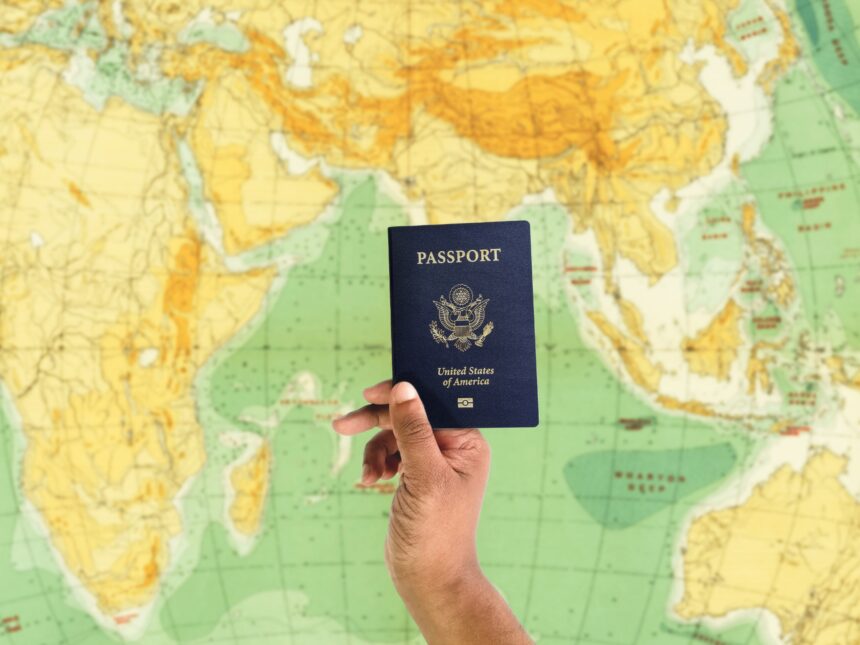Becoming a U.S. citizen is a significant milestone in the lives of immigrants. It opens doors to numerous opportunities and grants you the rights and responsibilities of full citizenship. However, before you can take the oath of allegiance and officially become a citizen, you must pass the citizenship practice test. In this comprehensive guide, we’ll explore what the test entails, how to prepare for it, and provide you with essential practice test questions and answers.
Being a U.S. citizen is a dream for many immigrants. It offers the chance to fully participate in American society, exercise your voting rights, and enjoy the protection of the United States. However, the path to citizenship involves several steps, one of which is passing the citizenship practice test.
Related: Walmart Assessment Test Answers
Sample Citizenship Practice Test Questions and Answers
1. What is the highest law of the land in your country?
- Answer: The Constitution.
2. What is the capital city of your country?
- Answer: [Insert the capital city of your country].
3. Who is the current head of state in your country?
- Answer: [Insert the name of the current head of state].
4. What are the three branches of government in your country?
- Answer: Executive, Legislative, and Judicial.
5. What is the minimum voting age in your country?
- Answer: [Insert the minimum voting age in your country].
6. Name one right or freedom protected by the Constitution in your country.
- Answer: Freedom of speech.
7. What is the rule of law?
- Answer: Everyone must follow the law, including government officials.
8. Who can vote in elections in your country?
- Answer: Citizens who meet the voting age requirement.
9. What are the colors of your country’s flag?
- Answer: [Insert the colors of your country’s flag].
10. What is the significance of Independence Day in your country?
- Answer: It commemorates the country’s independence from colonial rule.
11. What are the three branches of the U.S. government?
- Answer: Executive, Legislative, and Judicial.
12. Who is the Commander-in-Chief of the U.S. military?
- Answer: The President.
13. How many members are there in the U.S. House of Representatives?
- Answer: 435.
14. Who becomes the President of the United States if the President and Vice President can no longer serve?
- Answer: The Speaker of the House.
15. What is the Constitution of the United States?
- Answer: The supreme law of the United States.
16. What are the first ten amendments to the Constitution called?
- Answer: The Bill of Rights.
17. What is freedom of religion?
- Answer: The right to practice any religion or not practice any religion.
18. What is the economic system of your country?
- Answer: [Insert the economic system of your country].
19. What is the highest court in your country’s judicial system?
- Answer: [Insert the name of the highest court in your country].
20. Who is the current head of government in your country?
- Answer: [Insert the name of the current head of government].
21. What is the process of amending the Constitution in your country?
- Answer: [Insert the process of amending the Constitution in your country].
22. What are the qualifications for becoming a naturalized citizen in your country?
- Answer: [Insert the qualifications for naturalization in your country].
23. What is the significance of the Emancipation Proclamation in U.S. history?
- Answer: It declared the freedom of enslaved people in Confederate states.
24. What is the Preamble to the U.S. Constitution?
- Answer: The introduction that states the purpose of the Constitution.
25. What is the role of the Supreme Court in your country’s government?
- Answer: To interpret laws and ensure they are consistent with the Constitution.
26. What are the responsibilities of a citizen in your country?
- Answer: [Insert the responsibilities of citizens in your country].
27. What is the purpose of the United Nations?
- Answer: To promote international peace and cooperation.
28. What is the role of the Executive Branch in your country’s government?
- Answer: To enforce and administer laws.
29. What is the role of the Legislative Branch in your country’s government?
- Answer: To make and pass laws.
30. What is the role of the Judicial Branch in your country’s government?
- Answer: To interpret and apply laws.
31. What is the Bill of Rights in the United States?
- Answer: The first ten amendments to the U.S. Constitution.
32. What is the significance of Martin Luther King Jr. Day in the United States?
- Answer: It honors the civil rights leader’s contributions to equality and justice.
33. What is the meaning of “equality under the law”?
- Answer: All individuals are treated the same way by the legal system.
34. What is a democracy?
- Answer: A system of government where citizens have the power to elect leaders.
35. What are the fundamental principles of democracy?
- Answer: Rule of law, political equality, and individual rights.
36. What is the role of the press in a democracy?
- Answer: To inform the public and serve as a check on government.
37. What is the significance of the 19th Amendment in U.S. history?
- Answer: It granted women the right to vote.
38. What is the role of a jury in a trial?
- Answer: To determine the guilt or innocence of a defendant.
39. What is the system of government in the United Kingdom?
- Answer: A constitutional monarchy and parliamentary democracy.
40. Who is the head of state in the United Kingdom?
- Answer: The monarch (as of the knowledge cutoff date, Queen Elizabeth II).
41. What is the significance of the Magna Carta in the history of the United Kingdom?
- Answer: It limited the power of the monarchy and established certain rights.
42. What is the role of political parties in a democracy?
- Answer: To organize and represent the interests of citizens.
43. What is a referendum?
- Answer: A direct vote by the citizens on a specific issue or policy.
44. What is the role of a constitution in a country’s government?
- Answer: It establishes the fundamental laws and principles of a nation.
45. What is the significance of the Gettysburg Address in U.S. history?
- Answer: It highlighted the principles of freedom and equality during the Civil War.
46. What is the role of the United Nations Security Council?
- Answer: To maintain international peace and security.
47. What is the role of the United Nations General Assembly?
- Answer: To discuss and make recommendations on international issues.
48. What is the purpose of the North Atlantic Treaty Organization (NATO)?
- Answer: To promote collective defense and security among member countries.
49. What is the role of the Red Cross in international humanitarian efforts?
- Answer: To provide aid and support in times of humanitarian crises.
50. What is the significance of the Declaration of Independence in U.S. history?
- Answer: It declared the 13 American colonies’ independence from British rule.
Please note that the specific questions and answers may vary depending on your country’s citizenship test requirements. It’s essential to study the official materials and guidelines provided by your country’s immigration authorities to prepare thoroughly for your citizenship test.
What Is a Citizenship Practice Test?
Why Is It Important?
The citizenship practice test is a crucial step in the naturalization process. It evaluates your knowledge of U.S. history, government, and the English language. Passing this test demonstrates your commitment to becoming a responsible and informed citizen.
Who Needs to Take It?
All applicants for U.S. citizenship, unless exempt due to age and length of residency, must take the citizenship practice test. This includes permanent residents, refugees, and asylees.
How to Prepare for a Citizenship Practice Test
Study Materials
To excel in the citizenship practice test, you need to invest time in preparation. There are numerous study materials available, including official guides and online resources. Utilize these materials to build your knowledge and confidence.
Mock Tests
Taking practice tests can significantly improve your chances of success. Numerous online platforms offer mock citizenship tests, allowing you to familiarize yourself with the format and types of questions you’ll encounter.
Citizenship Practice Test Format
The citizenship practice test consists of several components:
Multiple Choice Questions
You will be asked multiple-choice questions about U.S. history, government, and civics. These questions assess your understanding of the nation’s fundamental principles.
Oral Interview
In addition to written questions, you will undergo an oral interview with a USCIS officer. This interview tests your ability to speak and understand English.
Common Topics Covered
The citizenship practice test covers a range of topics, including:
U.S. History and Government
Questions in this category may inquire about the Founding Fathers, the Constitution, and key historical events.
Civics Questions
These questions assess your knowledge of the U.S. political system, including the branches of government and the rights and responsibilities of citizens.
Reading and Writing Tests
You’ll also be tested on your ability to read and write in English. This evaluates your language skills, an essential aspect of becoming a citizen.
Top Tips for Success
Passing the citizenship practice test requires careful preparation and a clear understanding of the process. Here are some tips to help you succeed:
Time Management
Plan your study schedule to cover all necessary topics without feeling rushed.
Understanding the N-400 Form
Familiarize yourself with the N-400 form, which is the application for naturalization. Understanding its content is crucial for the interview.
Interview Etiquette
Practice good interview etiquette, such as arriving on time, dressing appropriately, and showing respect to the USCIS officer.
Frequently Asked Questions About Citizenship Practice Test
How many questions are on the citizenship practice test?
The citizenship practice test consists of 100 questions, but you will be asked 10 random questions during the interview.
What are the eligibility requirements for taking the test?
To take the test, you must be a permanent resident for at least 5 years (or 3 years if married to a U.S. citizen), be of good moral character, and meet other eligibility criteria.
How can I schedule my citizenship interview?
You can schedule your interview through the USCIS online portal or by contacting the USCIS customer service.
Can I take the test in my native language?
In some cases, USCIS offers exemptions based on age and length of residency, allowing applicants to take the test in their native language.
What happens if I fail the test?
If you fail the test, you will be given a second chance to retake it. Failing twice may result in a denial of your application.
How long does the citizenship process take?
The time frame can vary, but it typically takes several months to over a year from application to the oath ceremony.
Can I get help from an interpreter during the interview?
In most cases, you are expected to complete the interview in English. However, USCIS may provide interpreters in some situations.
What should I bring to the interview?
You should bring your green card, government-issued ID, and any requested documents or forms.
How many times can I retake the test?
You can retake the test once if you fail the first time. If you fail both attempts, you will need to reapply and go through the entire process again.
What are the benefits of becoming a U.S. citizen?
Becoming a U.S. citizen grants you numerous benefits, including the right to vote, petition for family members to join you in the U.S., and access to certain government jobs and benefits.
Related: Nursing Interview Questions and Answers PDF
Final Words
Passing the citizenship practice test is a significant step toward achieving your dream of becoming a U.S. citizen. With thorough preparation and dedication, you can navigate this important milestone successfully. Remember to stay informed, practice regularly, and approach your interview with confidence. Good luck on your journey to becoming a proud U.S. citizen!
Upwork Readiness Quiz – Take Quiz Now!





